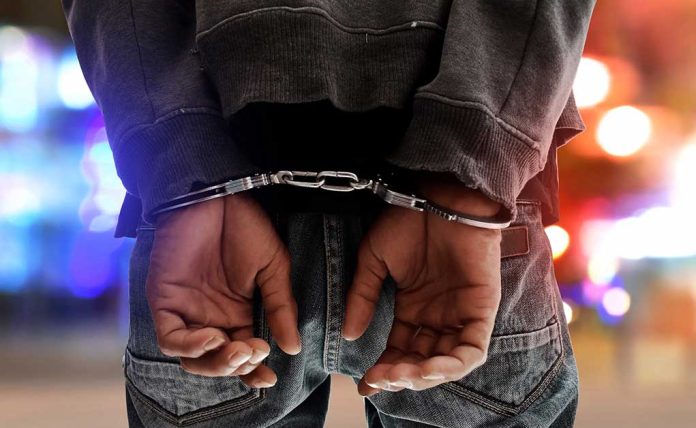
Mexican authorities have dealt a significant blow to one of the most notorious cartels, arresting its top leader and sending shockwaves through the criminal underworld.
At a Glance
- Mexican military captures Alberto Monsivais Trevino, aka “La Bola,” a top leader of the Cartel Del Noreste (CDN) faction of Los Zetas
- Arrest took place in Nuevo Laredo, a key border city and drug trafficking corridor
- CDN-Los Zetas linked to numerous violent crimes, including mass killings and attacks on military forces
- U.S. Border Patrol on high alert for potential retaliatory attacks
- Arrest highlights ongoing challenges in combating powerful drug cartels along the U.S.-Mexico border
Major Cartel Leader Captured in Border City
In a significant blow to organized crime, Mexican authorities have arrested Alberto Monsivais Trevino, a top leader of the notorious Cartel Del Noreste (CDN) faction of Los Zetas. Known in the criminal underworld as “La Bola,” Trevino was apprehended during a raid by Mexico’s National Guard in the volatile border city of Nuevo Laredo, Tamaulipas.
This arrest marks a significant victory in Mexico’s ongoing battle against drug cartels, which have long terrorized border regions and facilitated the flow of narcotics into the United States. The CDN-Los Zetas have been implicated in a wide range of violent crimes, including mass killings, abductions, and brazen attacks on military forces.
Family Ties and Cartel Operations
Trevino’s arrest is particularly noteworthy due to his familial connections within the cartel hierarchy. He is the nephew of Miguel Angel and Omar Trevino Morales, known as Z-40 and Z-42 respectively, who are the imprisoned supreme leaders of the CDN-Los Zetas. Despite their incarceration, the Trevino Morales brothers reportedly continue to exert control over the cartel’s operations from behind bars.
The CDN-Los Zetas are known for their militaristic structure and brutal tactics. They operate an armed wing called Hells Troops, which patrols Nuevo Laredo in armored convoys, instilling fear in the local population and rival criminal groups alike. This level of organization and firepower underscores the challenges faced by Mexican authorities in combating these powerful cartels.
Implications for Border Security
The arrest of such a high-ranking cartel figure has raised concerns about potential retaliation, particularly along the U.S.-Mexico border. U.S. Border Patrol agents in Texas have been placed on high alert following Trevino’s capture, with fears of violence spilling over into American territory.
A memo from the Laredo Sector Intelligence Unit warns of potential “cross-border violence in the form of retaliatory attacks” and advises caution when dealing with “military-aged undocumented noncitizens” who may be cartel combatants attempting to flee into the United States. This heightened state of alert highlights the ongoing security challenges posed by powerful drug cartels operating in the border region.
A Continuing Battle
While the capture of Alberto Monsivais Trevino represents a significant victory for Mexican authorities, the war against drug cartels is far from over. The arrest of high-profile leaders often leads to power struggles within criminal organizations, potentially sparking new waves of violence as rival factions vie for control.
Moreover, the deeply entrenched nature of these cartels, often supported by corrupt officials and local populations dependent on the drug trade for their livelihoods, makes their complete eradication a daunting task. As long as there is demand for illegal drugs in the United States and other countries, these criminal organizations will continue to adapt and evolve, presenting ongoing challenges for law enforcement on both sides of the border.

















